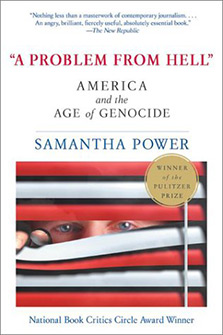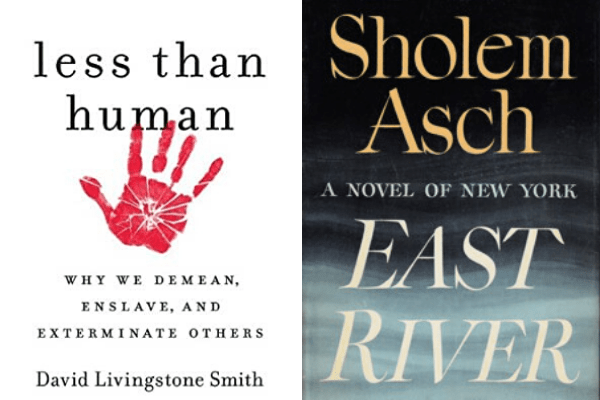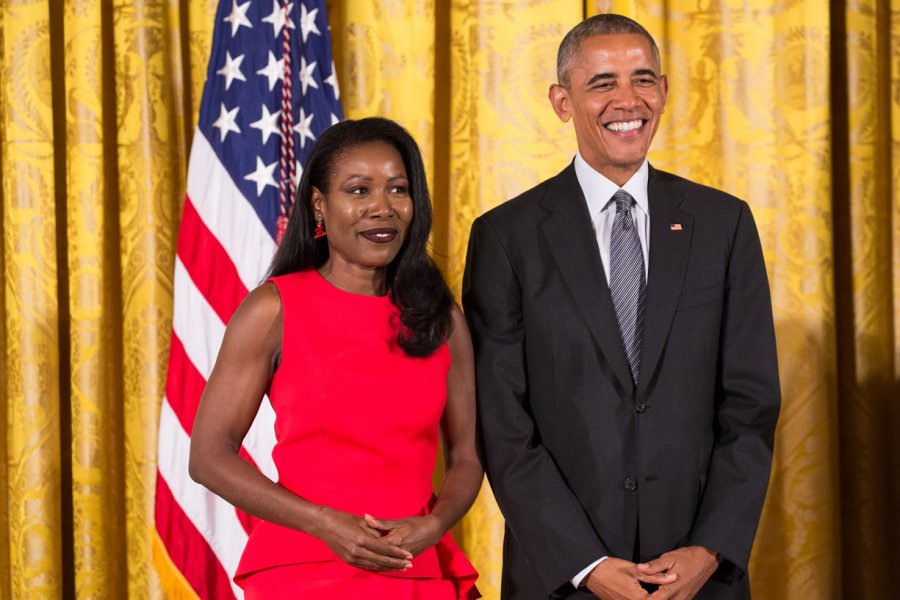This spring, as Rwanda commemorates the 1994 genocide that extinguished more than a million of its citizens, a nation assesses its reconstruction while the wider world wrestles with the fact that it stood by. Several important books illuminate these tasks.
“Twenty years ago today our country fell into deep ditches of darkness,” said Louise Mushikiwabo, Rwanda’s current minister of foreign affairs. “Twenty years later, today, we are a country united and a nation elevated.”
Economic progress and a fragile peace characterize Rwanda now, under a new Constitution and a marked ascendancy of women into leadership. A moving photographic portrait of the hard work of reconciliation is newly published in the New York Times.
“The story of U.S. policy during the genocide in Rwanda is not a story of willful complicity with evil,” wrote Samantha Power in 2001, in her now-landmark essay, Bystanders to Genocide. “U.S. officials did not sit around and conspire to allow genocide to happen. But whatever their convictions about ‘never again,’ many of them did sit around, and they most certainly did allow genocide to happen.”
This startling essay expanded into Power’s book, “A Problem from Hell: America in the Age of Genocide,” which won both the 2003 Anisfield-Wolf Book award for nonfiction and a Pulitzer Prize.
The book is a meticulously researched portrait of U.S. inaction throughout the 20thcentury – despite the growth of human rights groups, the advent of instant communications and the erection of the Holocaust Museum on the Mall in Washington, D.C. “Rwandan Hutus in 1994 could freely, joyfully and systematically slaughter 8,000 Tutsis a day for 100 days without any foreign interference,” Power writes.
All the while, the Clinton Administration blocked deployment of U.N. peacekeepers, worked actively in diplomatic circles to suppress the “G-word” (genocide) and “refused to use its technology to jam radio broadcasts that were a crucial instrument in the coordination and perpetuation of the genocide,” Power writes.
In “Less than Human,” David Livingstone Smith picks up on these radio broadcasts as essential fodder to the dehumanization that made the Rwandan genocide possible. His book won the Anisfield-Wolf Book Award in 2012, and is the basic text for the Anisfield-Wolf course at Case Western Reserve University: Reading Social Justice.
As the world remembers the antithesis of social justice – wholesale butchery of a people – both Power and Smith exemplify how sober scholarship can illustrate the circumstances that unleash new killing fields. Smith is a professor of philosophy at the University of New England; Power has become the U.S. Ambassador to the United Nations.



